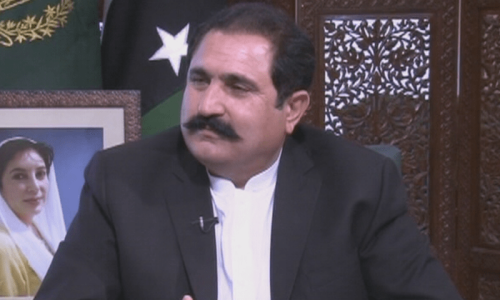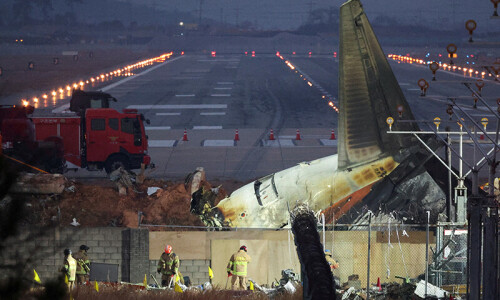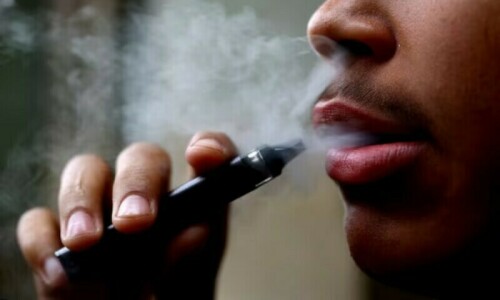MORE than six months after one of our most blatantly rigged elections, we have barely inched forward on resolving election disputes. A recent Fafen report shows that 23 election tribunals have so far decided only 25 petitions, on average one each, with 16 rejected and nine abandoned by petitioners.
Balochistan tribunals alone have decided 14 of them. But tribunals in Islamabad and Punjab — the sites of the most serious rigging charges and handling nearly 50 per cent of the 377 national and provincial petitions against 36pc of all assembly seats — have decided only one case. They have been largely inoperative due to disputes between the executive, ECP and courts over their formation. Common sense and justice say that since the executive and ECP stand accused of rigging, high courts must decide this matter. Yet, the matters drag on in the SC and IHC strangely even after months.
Thus, the deadline for petitions’ disposal will be violated in most cases. Such delays are routine in Pakistan. However, delays this time are more iffy as in many cases, the rigging charges centre simply on the ECP having doctored the consolidation in Form 47 to change the Form 45 results issued by each polling station for a seat. Such a simple matter should have taken two to three weeks to resolve for all cases. That it remains in limbo even after months suggests foul play and foot dragging by the ECP, executive, the invisibly omnipresent establishment and even parts of the judiciary.
This is unsurprising as their quick disposal may cause a political earthquake. PTI-backed candidates have filed the most petitions: 188 or nearly 50pc of all petitions, including 76 for national and 72 for Punjab assemblies. Smaller progressive parties have petitions too. There are also the contested reserved seats that rightfully are PTI’s. If all these issues are justly resolved, the rigged centre and Punjab set-ups led by the uncle-niece Sharifs may quickly fold. The key person for resolving matters is the Supreme Court chief justice. That is why we see the tornado of gossip engulfing Islamabad about the PML-N’s devious plans to retain the current CJP to protect its interests. The new CJP may not nix the 2024 polls directly, as some fear, but by acting quickly on the tribunals and reserved seats issues, he may open the floodgates that quickly drown the sorry-looking PML-N setup.
The victim parties in one election have often been aggressors/victors in others.
This would not just be a blow for the PML-N but also for the establishment. The fundamental logic governing Pakistan is not its Constitution but the unwritten law that every institution and law, including Constitution, courts, ECP, executive, parliament, bureaucracy, media and civil society can be manipulated or damaged to give even tactical gains to the establishment. If the new CJP takes over and acts freely, one may see a ferocious reaction. Thus, the coming months may see much mayhem.
These are not the first elections to be rigged. The 2018 ones were rigged too, though not as badly as 2024. But the 2018 rigging had its own significance as it came after two relatively fair polls (2008 and 2013). That had given hope to diehard democrats that we are finally seeing the political legitimacy that may lead to political stability, security and economic progress. Yet, that was not to be and now we are so far from all those outcomes that it is hard to even see a U-turn back to them in the foreseeable future. And then there are numerous earlier polls rigged by the powers that be against only one rigged by civilians (1977). The victim parties in one election have often been aggressors/victors in others, like PTI and PML-N, but with the establishment always being the real covert winner.
Neutral caretakers was our way to stop rigging. They do have their value against rigging by civilians as Bangl-adesh’s case shows. It had three fair polls under them and three rigged polls after nixing them. But even they fail when the elephant in the room tramples over electoral integrity. Constitutional tools won’t stop it; only huge political mobilisation will.
Our four partly fair polls (’71, ’88, ’08 and ’13) were all held after each of the three eras of open establishment rule for around a decade each that hugely damaged us and there was immense foreign, domestic and even pressure within the ranks for it to quit politics. It has ruled covertly since 2018 but has caused huge problems to Pakistan in every field. Thus, the time is ripe for civil society actors to organise themselves to put pressure on the three major and other parties to stop being pawns and sign charters of democracy and governance to keep the establishment out and deliver civilian sway and able rule.
The writer is a political economist with a PhD from the University of California, Berkeley.
Published in Dawn, September 3rd, 2024













































Dear visitor, the comments section is undergoing an overhaul and will return soon.